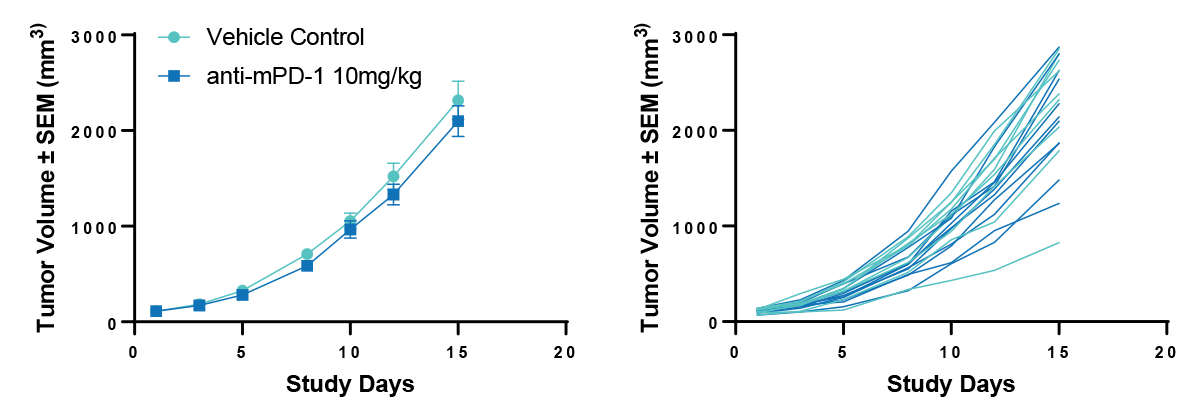CT-26 Syngeneic Model
Synonyms: CT26, CT26 colon carcinoma cell line
CT-26 is a well-known cancer cell line derived from a murine colon carcinoma. It is widely used as a preclinical model to study various aspects of colorectal cancer. CT-26 cells exhibit characteristics similar to human colon carcinoma, making them valuable for understanding the disease. They possess an epithelial morphology and can form tumors when implanted in animal models. CT-26 is frequently employed to investigate genetic alterations, signaling pathways, immune responses, and drug sensitivity in colorectal cancer research. It serves as a crucial tool in evaluating the efficacy of different treatment approaches, including chemotherapy, immunotherapy, targeted therapies, and combination treatments. The CT-26 cell line plays a significant role in advancing our knowledge of colorectal cancer and developing novel strategies for its diagnosis and treatment.
Model Details
Cancer Type: Colorectal Cancer
Model Name: CT-26
Mouse Strain: balb/c
Treatment Data Available: aPD-1, aPD-L1, aCTLA-4
CT-26 Growth Curves: Response to aPD-1

Growth of subcutaneous CT-26 in balb/c mice (n=10). Response to aPD-1 dosed Q4Dx4.
Request Additional Syngeneic Model Data
CONTACT US
Get Started.
Have questions about how TD2 can assist with your regulatory needs? Reach out to our expert staff today to get started.


